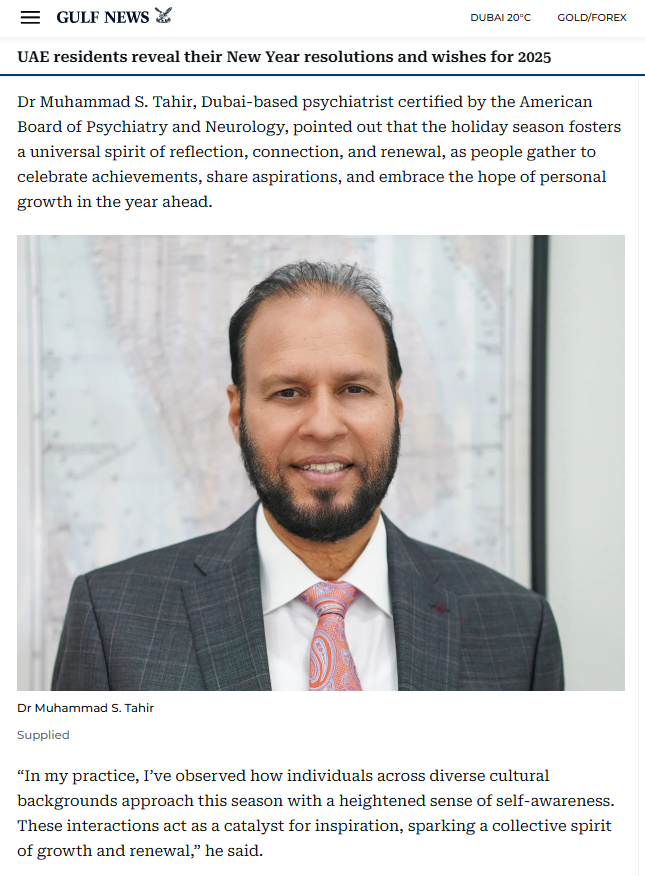The start of a new year often feels like a chance to reset, an opportunity to reflect on the past and envision a better future. Many people set aspirations during this time, aiming to improve their health, relationships, careers, or personal growth. These goals are not merely wishful thinking; they reflect a deep-seated human desire for self-actualization and purpose. Yet, studies show that a significant number of New Year’s resolutions are abandoned within the first few months. Why do so many of us struggle to follow through on their aspirations? And how can professional support from therapists and coaches help bridge the gap between setting and achieving goals? This blog delves into the psychology behind aspirations, the barriers to success, and how seeking professional help can create meaningful and lasting change.
The Psychology of Aspirations
Aspirations stem from our intrinsic motivation to grow, evolve, and create a life aligned with our values. According to Abraham Maslow’s Hierarchy of Needs, self-actualization—the fulfilment of one’s potential—is the pinnacle of human motivation. Aspirations give us direction and purpose, acting as a roadmap for personal and professional growth. Psychologist Edwin Locke’s Goal-Setting Theory further emphasizes the importance of clear, challenging goals in driving performance and satisfaction. Locke found that specific, ambitious goals lead to higher levels of achievement than vague or easily attainable ones, provided the individual is committed and capable of reaching them.
However, the act of setting goals alone is not enough. The DSM-5 (Diagnostic and Statistical Manual of Mental Disorders, Fifth Edition) highlights the role of cognitive and emotional regulation in maintaining motivation and resilience. Goals that are intrinsically motivated—rooted in personal values and interests—are more likely to sustain effort over time than those driven by external pressures, such as societal expectations or fear of failure.
According to ex-assistant professor Columbia University New York and founder of American Wellness Center, Consultant Psychiatrist Dr. Muhammad S. Tahir, “I’ve observed individuals across diverse cultural backgrounds approach this season with a heightened sense of self-awareness. Social gatherings, whether at family dinners or festive meetups, offer opportunities to connect, share stories, and exchange aspirations. Conversations often revolve around lessons learned, future goals, and the desire to do better in the coming year. These interactions act as a catalyst for inspiration, sparking a collective spirit of growth and renewal. As the calendar resets, so does our psychological framework. It’s an opportunity to imagine a better version of ourselves, free from the shortcomings of the past. Resolutions, whether personal or professional, represent a commitment to change and improvement.”
Why Do some individuals Struggle to Achieve Their Goals?
Despite the initial enthusiasm of setting goals, many people face significant challenges in following through. These barriers often stem from psychological, emotional, and practical factors, including:
Setting overly ambitious goals can lead to frustration and burnout when progress doesn’t happen as quickly as anticipated. For example, aspiring to lose 30 pounds in a month or completely overhaul a career in a few weeks sets an individual up for disappointment. Psychologist Albert Ellis, known for Rational Emotive Behavior Therapy (REBT), emphasized the dangers of “irrational beliefs”—unrealistic expectations that can lead to self-sabotage and emotional distress.
2. Lack of Specificity
Vague goals like “be happier” or “get healthier” lack actionable steps and measurable outcomes. Without clarity, it becomes difficult to track progress or stay motivated. Behavioral psychologist B.F. Skinner’s work on operant conditioning underscores the importance of clear, achievable objectives and reinforcement to sustain behavior changes.
3. Cognitive Distortions
Negative thought patterns, such as perfectionism, catastrophizing, or all-or-nothing thinking, can hinder progress. For instance, missing one workout might lead someone to abandon their fitness plan entirely, believing they’ve “failed.” Cognitive Behavioral Therapy (CBT), developed by Aaron Beck, addresses these distortions by helping individuals reframe unhelpful thoughts into constructive ones.
4. Emotional Challenges
Underlying mental health conditions such as anxiety, depression, or unresolved trauma can create significant roadblocks. These challenges often manifest as avoidance, procrastination, or self-doubt, making it difficult to take consistent action.
5. Poor Support Systems
Achieving aspirations often requires a supportive environment. A lack of encouragement or accountability from friends, family, or colleagues can leave individuals feeling isolated and unmotivated.
When to Seek Professional Help
If you find yourself repeatedly setting the same goals or even different goals without making progress and or results or if your struggles are tied to deeper emotional or psychological issues, it may be time to seek professional support. The **DSM-5** highlights the importance of professional intervention when maladaptive behaviors or emotional dysregulation interfere with daily functioning and personal growth. Therapists and coaches can provide the tools, structure, and encouragement needed to overcome these barriers and create sustainable change.
How Therapists and Coaches Assist Individuals
Therapists and coaches play complementary roles in helping individuals achieve their goals. While therapists focus on addressing emotional and psychological barriers, coaches provide practical strategies and accountability. Both professionals use evidence-based approaches to empower clients and foster resilience.
Therapists
Therapists help clients explore and resolve the underlying factors that may be impeding their progress. Common therapeutic approaches include:
– Cognitive Behavioral Therapy (CBT): This evidence-based method helps clients identify and challenge negative thought patterns, replacing them with constructive beliefs and behaviors. For instance, someone struggling with self-doubt might learn to recognize and counteract thoughts like “I’ll never succeed.”
– Mindfulness-Based Therapy: Techniques such as mindfulness meditation and acceptance strategies enhance self-awareness and emotional regulation, enabling clients to stay focused on their goals.
– Motivational Interviewing (MI): This client-centered approach helps individuals explore their ambivalence about change and build intrinsic motivation. Therapists use open-ended questions and reflective listening to guide clients toward their own solutions.
Coaches
Life coaches focus on actionable steps and practical strategies to help clients achieve specific goals. Their methods often include:
– SMART Goals Framework: Coaches guide clients in setting goals that are Specific, Measurable, Achievable, Relevant, and Time-bound, ensuring clarity and accountability.
– Strengths-Based Coaching: By identifying and leveraging an individual’s existing skills and resources, coaches foster confidence and momentum.
– Regular Check-Ins: Frequent progress reviews keep clients accountable and provide opportunities to adjust strategies as needed.
Methods and Success Rates
The success of therapy and coaching depends on factors such as the individual’s commitment, the therapeutic approach, and the quality of the professional relationship. Research highlights the effectiveness of evidence-based therapies like CBT, with studies showing significant improvements in goal achievement and emotional wellbeing for over 75% of participants. Coaching, while less clinical, boasts high satisfaction rates, particularly for individuals seeking structured guidance and accountability.
Commonly used methods include:
1. Behavioral Activation: Encouraging positive behaviors to build momentum and counteract procrastination.
2. Visualization Techniques: Using mental imagery to create a clear picture of success and boost motivation.
3. Accountability Systems: Regular check-ins and progress tracking to maintain focus and commitment.
Maximizing the Benefits of Professional Support
According to mental health professionals to make the most of therapy or coaching, individuals should:
- Be Open and Honest: Sharing your struggles and aspirations candidly allows professionals to tailor their guidance effectively.
- Commit to the Process: Change takes time and effort. Regular sessions and active participation are essential for progress.
- Practice Self-Compassion: Acknowledge that setbacks are part of the journey and view them as opportunities for learning rather than failure.
- Stay Flexible: Be willing to adjust your goals and strategies as circumstances evolve.
The Role of Reflection in Achieving Aspirations
Reflection is a crucial part of the goal-setting and achievement process. By examining past successes and challenges, individuals can identify patterns, strengths, and areas for growth. Psychologist Donald Schon’s concept of “reflective practice” emphasizes the importance of learning from experience to improve future performance. Incorporating regular reflection into your routine can deepen self-awareness and reinforce motivation.
Turning Aspirations into Achievements
Aspirations are more than just resolutions; they represent our hopes, values, and vision for a better future. However, turning these dreams into reality requires more than determination. By understanding the psychological principles behind goal-setting, addressing barriers, and seeking professional support when needed, individuals can transform their aspirations into meaningful achievements.
Therapists and coaches serve as invaluable guides on this journey, offering tools and strategies to overcome obstacles and foster growth. As you step into the new year, consider not just what you want to achieve, but also how you will support yourself in reaching those goals. With the right mindset, resources, and support, this year can become the foundation for lasting success and fulfilment.




